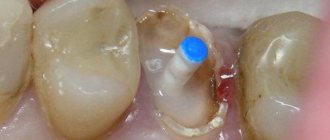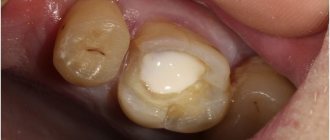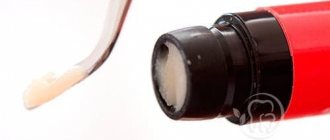Standard periods during which the warranty is valid
The answer to the question of whether there is a guarantee for removable dentures at all is clearly positive. According to the law of the Russian Federation, it is assumed that any dentistry must give its patients confidence: the product will not fail in the near future after installation, and the work is done with high quality. And undertake to correct easily remediable as well as significant deficiencies in the activities of their specialists if they are identified within the warranty period.
And the best confirmation of this fact is the warranty. According to them, if the design breaks down, is found to be defective, or was originally installed incorrectly, then the clinic will correct it, repair it, or replace it with a new one (of equal value, made of the same material) free of charge. And in some cases, they will even be required to return the money spent by the patient on treatment and reimburse expenses incurred [1] to eliminate the shortcomings of the work done by third parties.
Important ! Most clinics do not provide a guarantee for temporary removable and fixed dentures, which are supported by natural teeth. After all, such products are installed at one of the stages of treatment and must be replaced as soon as possible. As for permanent dentures, all of them: a single crown, an inlay, partial, complete removable and fixed products for replacing all teeth in a row, as well as a bridge prosthesis in dentistry must have a guarantee.
What to expect if you have installed removable products? As a standard, most clinics provide a warranty period for prostheses for a period of 1-2 years. If we are talking about fixed devices, then this is 2 years. Less common are cases where dentistry gives an increased guarantee of 5 years or even indefinitely, and even with free service. But usually such conditions can be met with expensive treatment. For example, complex dental implantation in 1 day with the installation of permanent structures. Or veneers and lumineers.
Expert opinion
Yurkevich Vadim Igorevich
Specializations: Orthopedic dentist
Experience: 16+
“The guarantee can be established by a doctor on an individual basis if the patient initially has a history of diseases such as bruxism, diabetes mellitus or oncology, periodontal disease. Or if there are specific features of professional activity (sports, work in hazardous chemical production). In these cases, it is not always possible to predict a long-term successful result of treatment and prosthetics.”
Warranty
POSITION
on establishing the warranty period and service life
when providing dental care
1. These Regulations were created for the purposes of:
improving the regulation of relationships that arise between Belinka LLC, hereinafter referred to as the Clinic, and the Patient when providing dental care at the expense of the patient’s personal funds, funds of enterprises, organizations, as well as those served under voluntary medical insurance and compulsory medical insurance.
2.This Regulation has been developed in accordance with the Civil Code of the Russian Federation, the Law of the Russian Federation “On the Protection of Consumer Rights” (as amended by the Federal Law of the Russian Federation No. 2 - FZ of January 09, 1996. Federal Law of the Russian Federation of December 17, 1999 No. 212-FZ “On introducing amendments and additions to the Law of the Russian Federation “On the Protection of Consumer Rights”), Rules for the provision of paid medical services to the population by medical institutions (approved by Decree of the Government of the Russian Federation of January 13, 1996 No. 27), Law of the Russian Federation “On the fundamentals of protecting the health of citizens in the Russian Federation” dated November 21, 2011. No. 323.
3. The warranty period is the period during which ,
— free elimination of deficiencies in the work performed (service provided);
— a corresponding reduction in the price of work performed (service provided);
- free production of another product from a homogeneous material of the same quality or repeat work. In this case, the consumer is obliged to return the product previously transferred to him by the contractor;
- reimbursement of expenses incurred by him to eliminate deficiencies in the work performed (service provided) on his own or by third parties.
The warranty period is calculated from the moment the work result is transferred to the Patient, i.e. from the moment the service is provided and the certificate of completion of work is signed.
Guarantees in medicine, including dentistry, are divided into:
- Mandatory or unconditional;
- Predictable, determined taking into account the circumstances of treatment and the conditions for maintaining the achieved results.
Mandatory guarantees
When providing paid medical dental services, the institution guarantees:
1) safety - is ensured by strict compliance with all stages of disinfection and sterilization of medical instruments and medical equipment (the Clinic carries out a set of sanitary and epidemiological measures in accordance with the rules established at the legislative level), as well as the use of technologies and materials approved for use by the Ministry of Health of the Russian Federation, not expired at the time of service provision;
2) provision of complete, reliable and accessible information about the Patient’s health status, taking into account his right and desire to receive it of his own free will;
3) drawing up a recommended (suggested) treatment plan;
4) provision of types of dental services in accordance with the license;
5) treatment by specialists who have certificates confirming the right to carry out this type of medical activity;
6) careful adherence to treatment technologies, which involves professional training of doctors, dental technicians and nurses;
7) individual selection of anesthetics, which allows to eliminate pain to the maximum extent, taking into account the Patient’s age, his allergic status, general health indicators and experience of treatment with a dentist;
 measures to eliminate and reduce complications that may arise during or after the provision of services;
measures to eliminate and reduce complications that may arise during or after the provision of services;
9) conducting follow-up examinations - as indicated after complex treatment or if necessary to prevent undesirable consequences;
10) conducting preventive examinations with a frequency determined by the doctor;
11) dynamic control of the process and results of the provision of medical services;
12) achieving indicators of the quality of medical services and aesthetic results (taking into account the standards available in domestic dentistry, the wishes of the Patient and objective circumstances identified by the doctor).
The combination of these mandatory guarantees provided by the Clinic creates the prerequisites for the high-quality provision of dental services and the sustainability of their results.
Projected guarantees
Predicted guarantees are the doctor’s prediction of certain treatment results, taking into account the circumstances identified in these situations, his experience, and confidence in the effectiveness of the technologies and materials used in this case.
Setting up predictable guarantees
For dental work (services) that has a material result (filling, dental crown, denture), predicted guarantees are established in the form of a warranty period.
The warranty period is the period of free elimination by the Clinic’s dentists of minor defects identified after treatment and not caused by the Patient. These include, for example, correction of fillings, additional polishing, removal of sensitivity, grinding of the bed of a removable denture, etc. This is also a period of free rework or replacement of work, re-treatment of the Patient in case of identification of irreparable deficiencies that arose after treatment and were not the fault of the Patient (loss of filling, fracture of prosthesis, etc.)
Due to their specificity, it is not possible to establish warranty periods and service periods for certain types of dental work (services):
- professional hygiene and cleaning of the oral cavity;
- temporary filling;
- all types of orthodontic treatment;
- implantation;
- surgical operations (resection of root apices, tooth extraction, etc.);
- repeated endodontic treatment;
- fillings when the tooth resolution is more than 50%, i.e. having direct indications for further prosthetics;
- treatment of gum inflammation;
- periodontal surgery;
- teeth whitening;
- fissure sealing.
In cases where, due to the specifications of dental work (services), it is impossible to determine the warranty period, the dentist establishes and explains to the patient the percentage of treatment success in each specific case.
If deficiencies are identified after such treatment, the work will be redone (the treatment will be repeated), if competent persons, the expert commission establishes the doctor’s guilt (incorrect diagnosis, violation of treatment technology, etc.).
Thus, the dentist establishes predictable guarantees either as terms (warranty periods and service life) or as a percentage of the probability of treatment success.
Guarantees are defined:
ü for each specific work performed;
ü taking into account the circumstances that the doctor discloses to the patient;
ü by agreement with the patient before (preliminary) and after treatment.
Circumstances defining guarantees
When assigning predictable guarantees to each patient for each work performed (warranty period and service life or percentage of probability of treatment success), the doctor takes into account and explains the circumstances limiting the guarantees (if any are identified):
1) the state of the general health of the Patient (the presence of diseases in the patient such as: oncology, diabetes mellitus, hepatitis, autoimmune diseases, blood diseases, thyroid diseases, diseases of the central nervous system, etc.)
2) the extent of the recommended treatment plan completed;
3) clinical situation in the Patient’s oral cavity (existing disorders, bite characteristics, saliva composition, increased tooth wear, prognosis or the possibility of relapse of existing diseases, etc.);
4) in certain complex cases, with the consent of the Patient, treatment or prosthetics can be carried out conditionally, i.e. without a guaranteed positive result. In such cases, the guarantee does not apply, money is not returned and is not taken into account for subsequent treatment;
5) the advantages and disadvantages of the technologies and materials used, as well as the selected treatment options;
6) features of the Patient’s professional activity that may negatively affect the results of treatment.
Reduced warranty period and service life
Possible reasons for reducing the warranty period:
- the influence of the Patient’s obvious and probable general diseases on the course of dental problems (metabolic disorders and systemic diseases);
- a decrease in the immunological reactivity of the Patient’s body, including that manifested by frequent infectious diseases;
- taking hormonal, psychotropic, narcotic, acid-containing drugs;
- failure to follow the doctor’s recommendations aimed at strengthening tooth enamel and normalizing the condition of the gums;
- self-medication of dental diseases (using procedures and taking medications not prescribed by a doctor);
- with unsatisfied oral hygiene, i.e. the hygienic index “GI” determined by the dentist is more than 1.5 - the warranty and service periods are reduced by 50%;
- with a KPU indicator (carious-affected, filled, extracted teeth) = 13-18, the warranty period and service life are reduced by 30%;
- with a control factor of more than 18, the warranty period and service life are reduced by 50%;
- violation of the rules for the use and care of dentures;
- other reasons justified by the Patient’s treating physician and (or) the Medical Commission of the clinic.
Cancellation of warranty periods and service periods
Warranties do not apply to the following cases:
- The patient, during the treatment process, or during the guarantee period established by these Regulations, applied for dental (orthopedic) care at any other medical institution. The exception is those cases when the patient was forced to urgently seek help while in another city when this fact was confirmed by extracts from the outpatient card, doctors’ reports, x-rays, etc.;
- The patient, during the treatment process or during the warranty period established by these Regulations, independently tried to eliminate the identified deficiencies;
- The patient, for unjustified reasons, without notifying the attending physician, missed the deadline for his next appointment with the doctor. The exception is those cases when the Patient was forced to urgently seek help while in another city when this fact was confirmed by extracts from the outpatient card;
- The patient does not comply with the recommendations of the attending physician to carry out the necessary measures to care for the condition of the oral cavity (frequency of preventive examinations, professional hygiene, care of dentures, constant monitoring of implants, etc. in accordance with established standards);
- If, after treatment during the warranty period, the Patient develops (manifests) diseases or physiological conditions that can negatively affect the results achieved (pregnancy, the occurrence of concomitant diseases or exposure to harmful environmental factors, including long-term use of medications or treatment of other diseases);
- If force majeure circumstances occur (accident, shock, natural disasters) that can negatively affect the result of treatment;
- Natural wear of removable denture matrices;
- The patient was warned by the attending physician about other cases where the clinic was unable to establish a guarantee period, but continued treatment with a corresponding entry in the outpatient record;
- If the Patient fails to comply with the requirements specified in this section (provided the Patient is aware of them), the Patient is deprived of the right to refer to shortcomings (defects) in the work that arose as a result of non-compliance with these requirements.
Warranty periods and service periods by type of dental work
Therapeutic dentistry services
Therapeutic dentistry services include services for the treatment of diseases: caries, pulpitis and periodontitis of teeth, cosmetic dentistry services (restoration or change of the original shape and color of a tooth without prosthetics, replacement/adjustment of fillings), services for the preparation (treatment) of teeth for prosthetics.
Signs of completion of treatment are:
- in the treatment of caries - a permanent filling is placed
- in the treatment of complications of caries (pulpitis and periodontitis) - filling of root canals with the placement of a permanent filling.
SERVICE LIFE AND WARRANTY PERIOD
on types of work when providing therapeutic care (placement of fillings, aesthetic restoration)
| № | Name | Guarantee period | Life time |
| 1 | Placement of fillings, aesthetic restoration | ||
| 1.2 | Cement filling | 0.5-1.5 months | 1-3 months |
| 1.2.1 | Chemical composite filling | 1-6 months | 9 months |
| 1.3 | Restoration of a tooth crown/filling with parapulp pins | 1-6 months | 9 months |
| 1.3.1 | Light-curing composite filling | 1 year | 2 years |
| 1.3.2 | Caries on the chewing surface of the tooth | 1 year | 2 years |
| 1.3.3 | Caries on the contact surface of small and large lateral teeth | 1 year | 2 years |
| 1.3.4 | Caries on the contact surface of the incisors with destruction of the crown angle; caries in the gingival area | 6 months | 9 months |
| 1.3.5 | Covered with filling material on the labial and cervical surfaces of teeth of all groups | 6 months | 9 months |
| 1.3.6 | Restoration of the tooth crown/filling with parapulp pins | 1 month - 1 year | 2 years |
| 1.4 | Adhesive prostheses | 6 months | 1.5 years |
| 1.8 | Primary endodontic treatment | 1 year | — |
Note:
- These terms are recommended for patients with single caries and multiple, stabilized or slowly ongoing processes.
With KPU teeth 13-18 – the time is reduced by 30%,
With KPU > 18, the terms are reduced by 50%.
- If oral hygiene is unsatisfactory, the time period is reduced by 70%.
Orthopedic dentistry services
Orthopedic dentistry services include services for the elimination (treatment) of defects in the teeth and (or) jaw dentition using permanent and (or) temporary orthopedic structures.
Permanent orthopedic structures include:
— metal-ceramic and solid-cast crowns, incl. combinations of these crowns, as well as bridge structures, veneers;
— metal-free crowns (pressed ceramics, composite crowns, zirconium oxide)
- partial removable dentures
- complete removable dentures
— clasp dentures (with locks, clasps, with fixation on implants);
Temporary orthopedic structures include:
- temporary crowns
- temporary replacement prostheses
The warranty period for orthopedic services begins to apply from the moment of installation of permanent structures in the Patient’s mouth, which is confirmed by an entry in the outpatient card and in the acceptance certificate for work performed/services rendered
Warranty periods and service periods for orthopedic dental services are not established:
— installation of temporary orthopedic structures
- if there is mobility of teeth - the warranty period is determined by the doctor
- in the presence of a concomitant disease: periodontitis, periodontal disease. A mandatory condition for providing a guarantee is to conduct a professional hygiene course 2-4 times a year. The warranty period is set by the doctor depending on the severity of the gum disease;
The attending physician may establish a shortened warranty period for orthopedic services. The attending physician must inform the Patient about the reduction in the warranty period for orthopedic services with an entry in the outpatient card.
During the warranty period and service life, relocation of orthopedic structures is carried out on a reimbursable basis.
Temporary orthopedic structures must be replaced with permanent ones; if, through the fault of the Patient (for various reasons), temporary structures are not replaced with permanent ones, then further responsibility from the Clinic is removed.
Until the delivery of the orthopedic structure, the Patient has the right to demand alteration/correction for the following reasons:
— the color, size or shape of the tooth in the orthopedic design is incorrect;
— the completed design does not correspond to the design defined in the prosthetic plan (treatment plan).
The warranty periods and service life specified below do not apply to locking matrices.
In case of unsatisfactory oral hygiene, the warranty and service life for all types of prosthetics are reduced by 50%;
If the schedules of preventive examinations provided for in the treatment plan are violated, the warranty period is terminated and not renewed.
SERVICE LIFE AND WARRANTY PERIOD
on types of work when providing orthopedic care
| № | Name | Guarantee period | Life time |
| 2.1 | Tabs | ||
| 2.1.1 | Made of metal | 1 year | 2 years |
| 2.1.2 | From zirconium | 1 year | 2 years |
| 2.3 | Crowns | ||
| 2.3.1 | Made of plastic | No warranty | 1 year |
| 2.3.2 | Made of metal ceramics | 1 year | 2 years |
| 2.3.3 | From zirconium dioxide | 1 year | 3 years |
| 2.3.4 | With composite cladding/metal composite | 1 year | 1.5 years |
| 2.3.5 | Solid crowns from NHS/KHS | 1 year | 2 years |
| 2.4 | Adhesive prostheses | 1 year | 1 year |
| 2.5 | Metal-ceramic bridges | 1 year | |
| 2.6 | Clasp dentures | 1 year | |
| 2.7.1 | Partial dentures | 6 months | 1 year |
| 2.7.2 | Complete removable plate dentures | 6 months | 1 year |
Placement of implants
Dental implantation is a method of implanting an artificial root (implant) into the bone tissue of the upper or lower jaw. Implants are used as supports on which either crowns (fully replacing lost teeth) or dentures (removable, clasp, bridge) are fixed.
In case of implant(s) failure, the following treatment options are available, minus the cost of each implant:
— The patient is refunded the amount he paid for the dental implantation performed;
— The patient undergoes re-implantation;
— if the Patient wishes, it is possible to change the treatment plan, taking into account the previously paid amount.
Warranties apply to dental implantation operations.
Guarantees do not apply to osteoplasty operations, soft tissue plastic surgery, sinus lifting, due to the individual ability of tissue regeneration.
The warranty period for the structural elements of the implant is provided to the Patient in accordance with the warranty established by the manufacturer (from 5 years to a lifetime warranty). The service life of the implant may be reduced due to serious diseases identified after implantation.
Warranty cases for structural elements include:
— fracture, deformation of the implant,
- fracture of the fixing screw,
— damage to the internal thread of the implant,
— in case of implant rejection before the start of prosthetics.
The clinic guarantees:
— examination and recording of the general health of the Patient before implantation in order to identify possible contraindications to the installation of implants;
— use of certified implants;
— the operation to install dental implants will be carried out in accordance with the protocol recommended by the manufacturer;
— medical monitoring of the implant healing process.
Maintaining the warranty period for dental implantation is only possible if the implant treatment was performed in full by the Clinic’s doctors, which includes:
- diagnostics,
— installation of the implant and former,
— manufacturing and fixation of denture structures on implants,
- observation in the postoperative period,
— preventive support in separate periods,
— and also subject to compliance with the requirements established by these Regulations.
Note:
Guarantees are valid only if the orthopedic design on implants was made by doctors of our Clinic, but if the implants were placed in our Clinic, and prosthetics on the implant(s) were carried out in another medical institution, there are no guarantees for the installed implant(s). s) do not apply.
Also, if prosthetics are not carried out in our Clinic on implants installed in another medical institution, no guarantees apply to the installed orthopedic structure.
Orthodontic dentistry services
Orthodontic dentistry services include services for the elimination of dental anomalies using orthodontic appliances.
The attending physician who conducts orthodontic treatment cannot guarantee a specific time frame for eliminating dental anomalies and clear results.
The Contractor guarantees:
- accuracy of diagnosis, identification of the cause of dental anomaly;
- selection of optimal orthodontic equipment;
- improving the aesthetics and function of the dental system.
Warranty periods and service periods for orthodontic treatment and orthodontic devices are established individually by the attending physician with prior notification to the Patient and a corresponding entry in the outpatient record.
CLINICAL EXAMINATION METHOD FOR ESTABLISHING WARRANTY TERMS AND SERVICE LIFE
Therapeutic dentistry:
Clinical assessment of the condition of the filling is carried out based on the study of the following criteria:
- anatomical shape of the filling (preservation of the original shape of the tooth), restored by the doctor as a result of filling;
— marginal fit is determined by probing: the filling fits tightly to the hard tissues of the tooth, the probe does not linger, there is no visible gap;
— discoloration along the outer edge of the filling (normally absent);
— recurrence of caries along the outer edge of the filling (normally absent);
— occlusal contacts in the area of the filled tooth (corresponds to the norm or is violated);
- loss of filling.
Changes in these criteria fall into the category of defects that must be corrected free of charge by the manufacturer during the current warranty period established for this type of seal.
Orthopedic and orthodontic dentistry:
Defects that must be corrected free of charge by the Clinic during the current warranty period:
- in the manufacture of inlays and veneers - changes in the anatomical shape, marginal fit, color change, recurrence of caries along the edge of the inlay;
— breakage of a clasp in a plastic prosthesis;
— fracture of the arch clasps in the clasp prosthesis;
— fracture of the hinge in the facets from the body of the complete bridge;
— fracture in a plastic lamellar prosthesis over a reinforced mesh;
— during the manufacture of inlays and veneers: loss, mobility of inlays, breakage of part of the tooth crown;
— violation of the integrity of the crown of the bridge, incl. near the facing;
- fracture of prostheses;
— decementing of fixed prosthetic structures.
FINAL PART
This Regulation is valid for the entire period of time until the relevant regulations are adopted at the federal or regional level, or local acts of the Clinic regulating the relationship between the Patient and the Clinic providing dental services.
Types of defects that the clinic must eliminate free of charge
If the work of dentists was performed with violations, then after a detailed examination they are classified into simple deficiencies and significant deficiencies. The first include minor and easily removable errors. For example, deformation of the anatomical shape of the dentures, recurrence of caries under the structure, poor marginal fit of the product, change in its color, breaking off hooks and clasps on a partial removable structure, inaccurate positioning, loss of inlays and veneers. Doctors undertake to correct such deficiencies within the time frame established by the guarantee.
A significant disadvantage is considered to be work that does not allow the patient to benefit from the results of treatment for its intended purpose. Or a very serious medical error that cannot be corrected and requires large expenses to eliminate. If such problems are discovered, the patient has the right to make demands for their elimination, even if the warranty period has expired, but only within the service life of the product - usually the period is about 10 years.
Important ! The current legislation of the Russian Federation obliges dental clinics to correct all deficiencies within the established warranty periods, and significant deficiencies - within the established service life of the prostheses.
Features of responsibility for seals
As a rule, the warranty on a light seal is valid even if a minor defect is discovered. These are defects that do not interfere with the use of the tooth, that is, chewing or biting, and do not cause pain:
- violation of fit along the edge;
- discoloration from the outer edge;
- recurrence of caries at the edges.
Of course, a guarantee for teeth is provided by law and if there are significant deficiencies in the work:
- loss of filling;
- her mobility;
- secondary caries caused by improper manipulation;
- fracture of part of the tooth crown.
Why do they refuse?
They can quite legally refuse if:
- you have already applied to another doctor to restore the same tooth and have not notified your attending physician;
- did not fulfill hygiene requirements in good faith. It is difficult to prove this, but for a professional it is possible;
- There are conditions or illnesses that can affect the progress or result of work. For example, you became pregnant, you caught a cold, neoplasms appeared, or chronic diseases worsened.
There are also difficult cases: is there a guarantee for seals if they are destroyed? For free restoration on a “patch”, no more than 50% of the damage is damaged. If it is destroyed, you will need to claim reimbursement for medical services. Then you will have to do all the filling work again.
Warranty and service life are not the same thing
Having heard about the very modest warranty period for dentures, which is only 1-2 years, many patients begin to panic. So what happens: in 2 years, or even earlier, expensive structures will have to be replaced? But no. Also, any orthopedic products have a certain service life, determined by the quality and characteristics of the materials used for manufacturing. It begins to operate from the day the structure is manufactured and is usually several times higher than the warranty itself.
You can always just ask your doctor for clarification about the service life
For example, fixed prostheses made of metal-ceramics and ceramics will last about 10 years, zirconium dioxide and ceramic composite – from 15 years and longer. But if you put plastic dentures on your teeth, you will have to change them within 1-2 years after installation, or more precisely, from the day the structure is handed over to the patient.
Removable products have a relatively short service life: clasp structures will last 7-8 years, acrylic ones and those made from new generation materials - about 5 years, nylon ones - 2-3 years. During the entire service life of the products, determined by dentistry, the clinic is responsible for significant deficiencies that arose due to the fault of doctors.
Important ! In all cases, much depends on the quality and condition of the supporting tissues (gums, teeth). If they collapse and become inflamed, the service life of the structures themselves is greatly reduced. Dentures begin to fail, cause severe discomfort, can become deformed, become loose and simply stop staying in the mouth.
Average treatment success rates in a medical organization
Endodontic treatment
The result of treatment in each specific case depends not only on its quality, but also on the general reaction of the body and the condition of the dental system as a whole.
Placement of implants
Complete implant engraftment is guaranteed in 97% of cases (service life of 5 years or more).
In all cases, the patient is guaranteed:
- examination and recording of the patient’s general health before implantation in order to identify possible contraindications to the installation of implants;
- use of certified titanium implants from leading foreign companies;
- painless installation of the implant;
- medical monitoring of the implant healing process.
Removal of a tooth
It is guaranteed that in all cases tooth extraction will occur:
- painless;
- with adequate surgical intervention.
Free elimination of possible complications in the postoperative period is guaranteed:
- inflammation;
- bleeding;
- edema;
- pain.
( 1 rating, average 5 out of 5 )
Required conditions for the warranty to be valid
It is important to know not only about the warranty period for the manufactured denture. But also about the conditions under which the clinic will be ready to fulfill its obligations:
- the breakdown did not occur through the patient’s fault: to do this, you must follow all the doctors’ recommendations,
- at the preparation stage, the patient did not hide from doctors facts and diseases that could affect the quality and result of treatment, the choice in favor of one or another design and method,
- the patient carefully cares for the oral cavity and performs hygiene,
- the patient has fully complied with and completed the treatment plan prescribed by the doctor. Plus, he does not refuse concomitant treatment if it is necessary and the need for it was identified during one of the preventive examinations,
- the patient did not apply to another clinic for work on the prosthesis, alterations or dental services,
- external traumatic effects on the dental system, breakage due to biting hard foods, due to chemical and thermal factors are excluded,
- According to the schedule, the patient undergoes preventive examinations (at least once every six months) and performs professional hygiene.
If your prosthesis breaks, it is important to establish the reasons for the warranty claim.
Is a light seal included in the policy?
According to compulsory medical insurance in 2022, filling material is free for policy holders. However, there are nuances. Before placing a light-curing filling, you need to clarify whether it is included in the compulsory medical insurance in 2019.
Domestic filling material is provided free of charge. This is cement. It is no worse than other materials, quite strong. Composite or metal may also be offered.
Light-curing fillings are modern and quite expensive. They are not only strong, but also do not differ in color from the tooth. They are installed using ultraviolet light, which promotes hardening.
According to compulsory medical insurance, a light filling, like a chemical filling, can be placed free of charge.
This is stated in the Guidelines for paying for treatment through compulsory health insurance (Appendix 7). According to it, light seals are included in the compulsory medical insurance policy as a free service. The policy owner has the right to modern filling material.
However, the realities differ from the prescribed rules. Due to the lack of government money allocated for health insurance, light fillings are placed only when indicated, most often on the front teeth. In other cases, you should rely on paid imported reflective material. Installation of a photopolymer filling in a private clinic can be free if it is still under warranty.
Important! Due to lack of money in the healthcare system, light-curing material is rarely purchased.
Light fillings are considered the strongest and most resistant to damage, which is why clinics offer them for a fee. It is illegal. If the doctor insists on paying for light filling material that is included in the compulsory medical insurance list, you must immediately call the insurance company directly from the dental office.
How to insure yourself against the clinic’s refusal to guarantee
Of course, by law there must be a warranty on dentures. But knowing what times we live in, it wouldn’t hurt to take care of collecting and preserving documentation that would confirm your rights as a consumer of goods and services. And first of all, you must have in your hands an agreement with the clinic, signed and sealed. Typically, such a document indicates all the obligations of the parties, the cost of treatment and prosthetics, the range of services provided that are covered by the guarantee, and the terms.
The contract also stipulates the conditions under which free activities carried out in the clinic apply (for example, re-treatment, service, professional hygiene and examinations).
Important ! If the clinic does not agree to fully fulfill its obligations regulated by law and correct poorly performed work that does not meet the requirements of the contract, the patient has the right to go to court.
After installing the dentures, you must follow the following rules if you want the warranty to apply:
- pay attention to the condition of the oral cavity and the structures themselves in general, carry out hygiene procedures daily,
- minimize traumatic factors, exclude too hard foods from the menu and get rid of bad habits (for example, biting off floss with artificial teeth, opening bottles and chewing nuts), and also avoid external mechanical influences on products (for example, situations in which removable dentures fall on the floor or tiles in the bathroom),
- If the material chips or the denture fasteners break, even minor cracks appear, peeling off, problems with the gums and teeth, as well as any pronounced discomfort, you should immediately visit your doctor. But trying to repair, glue and even file the product on your own (as some patients do with removable dentures) is strictly prohibited,
- undergo all preventive examinations: at the appointment, the doctor can notice and promptly correct any shortcomings that have arisen, but if you come after a long period of time, the situation may already be irreparable.
Your product, including even minor repairs, should be handled by a professional.
If the patient does not comply with the listed rules, the warranty on dentures, regardless of whether they are removable or fixed, can be legally canceled by the clinic. After all, specialists cannot be held responsible for the patient’s irresponsibility or mistakes made by other doctors.
Replacement under warranty
If after treatment a person’s filling breaks or falls out, but the warranty has not yet expired, you should demand that the problem be corrected. To do this, you need to call the reception of the dental company where the treatment was performed and make an appointment, telling about your problem. It is advisable that the person retains the contract and the receipt.
At the appointment, the doctor will examine the tooth and inform the patient whether the current situation is covered by the guarantee. If treatment was refused, but the patient is sure that the trouble arose due to poor-quality service, examinations can be carried out. You will have to do it at your own expense, but if the result is in favor of the patient, the clinic will have to pay for all services.
If, after the examination, dentistry does not want to correct its mistakes, then you should seek help from a medical lawyer. With its help, an application will be drawn up to request a medical record from the clinic. It is drawn up in two copies and one is signed by a representative of dentistry stating that the document has been approved.
After this, the patient goes to any other clinic and asks the doctor to describe the oral cavity. This procedure is necessary to file a claim. After this, you can begin dental treatment.
Secondary caries due to the fault of the doctor
When filing an application with the court, you must provide all receipts and demand compensation for moral damages.
What if the clinic doesn’t give a guarantee?
According to the Law “On the Protection of Consumer Rights”, in the case of the provision of paid services, the contractor has the right to establish and independently determine the warranty period for them (but this is a right, not an obligation). However, the absence of such a period does not relieve the clinic from liability to the patient for poor-quality service provided.
If deficiencies are identified during the use of orthopedic structures, the patient has the right to demand their correction no later than within 2 years from the date of acceptance of the work performed. If significant deficiencies are discovered - within 10 years. True, in this case you will have to prove your case, perhaps with the involvement of the courts.
How long is the Dental Treatment Guarantee?
- eliminate deficiencies or conduct re-therapy free of charge;
- reimburse expenses to eliminate the negative consequences of treatment.
The recommended warranty period is calculated within 1 year from the date of installation of the permanent seal and 2 years for the service life of the filling material. Covers therapeutic treatment for the following indications:
Let's understand the definition, its meaning (read more...)
Text of the contract for the provision of paid medical services and its annexes:
Agreement
for the provision of paid medical services
Stavropol "___"___________20__
hereinafter referred to as the Customer, have entered into this agreement as follows:
- 1.Subject of the agreement
1.3. Information on qualifications and certification of specialists: documents of specialists comply with the requirements.
- 2.Conditions and terms for receiving medical services
2.1. The provision of medical services is provided at the location of the Contractor.
2.2. Medical care is provided on an outpatient basis, in a day hospital, and in an inpatient setting.
2.3. The period for providing services is 60 (sixty) days.
- 3.Price and payment procedure
3.5. Excess amounts paid by the Customer are subject to refund.
- 4.Rights and obligations of the parties
5. Responsibility of the Parties
6. Special conditions
6.1. The Contractor has the right to refuse to accept the Customer in the following cases:
— when the Customer’s actions threaten the life and health of the Contractor’s medical personnel;
— when the Customer came to see a doctor in a state of alcohol, drug or toxic intoxication.
6.5. The contract is concluded for the entire period of the Customer’s treatment.
7. Additional terms of the agreement.
8. Duration of the contract
8.1. The validity period of this Agreement is from the date of conclusion to "____"_______________.
EXECUTOR:
Place of activity: Stavropol, st. M. Morozova, 6
Chief physician ___________ /Sheveleva S.I./
CUSTOMER:
Passport: series ______________No. _____________________
Documents for the provision of paid services. Guarantees in dentistry.
When providing paid medical services, an agreement is concluded with the patient.
All types of services agreed upon with the patient and provided are listed in the appendix to the contract - the estimate.
Upon completion of the work, a certificate of completion of work, a cash receipt and, in appropriate cases, a warranty card are issued.
I affirm:
Chief physician of the dental clinic of St. State Medical University
P.A. Grigorenko
January 20, 2022
What is the legal warranty period for dental fillings?
- filling cements: silicate, phosphate cements, glass ionomer;
- polishing pastes;
- arsenic;
- cleaning brushes;
- consumables: dressings, sutures, burs, bandages, cotton wool, x-ray film;
- domestic anesthetics and antiseptics: Novocaine, Lidocaine, Trimecaine.
The doctor may offer the patient other anesthesia drugs, modern filling paste that “seals” almost instantly, and other higher-quality materials for an additional fee, but the patient has the right to refuse them.










